On this page you will find information on:
- Making a difference one kilometer at a time
- Take your dog to work day at CCQ
- Robotic surgery giving hope to prostate cancer patients
- Making informed purposeful decisions counts at CCQ
- Everyday health survey
- Daffodil Day blooms in Queensland for another year
- Meet Bruce Turner, Data Entry Volunteer
- Volunteer opportunities
Making a difference one kilometer at a time
Graham Henry has been volunteering with our Transport to Treatment service as a driver since it’s inception last year. We enjoyed reading his kind words and thought you would too!
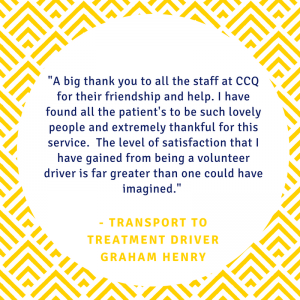
A massive thank you to all our supporters and volunteers who have helped make Transport to Treatment possible in Brisbane and Cairns.
We know it’s making a real difference in the community, as the below letter of thanks shows! With continued community support, we plan to roll out the program across the state.
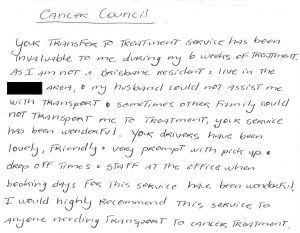
Take your dog to work day at CCQ
Here’s some puparazzi shots of our Take Your Dog to Work Day celebrations to brighten your day! Our four-legged furry co-workers brought some paw-sitive benefits to CCQ offices across the state, boosting wellbeing and reducing stress!
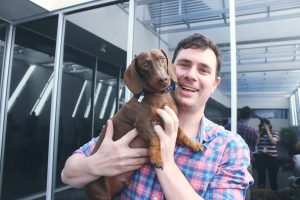
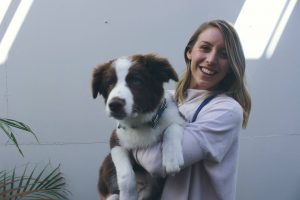
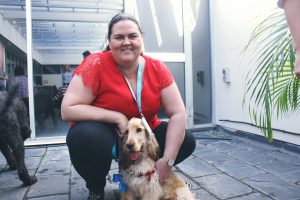
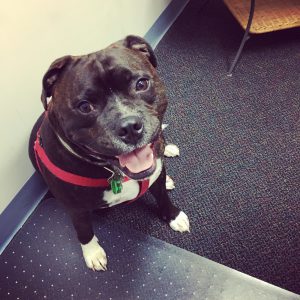

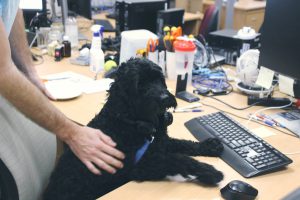
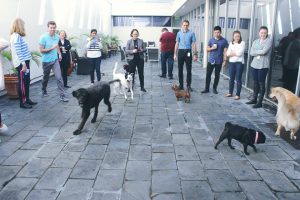
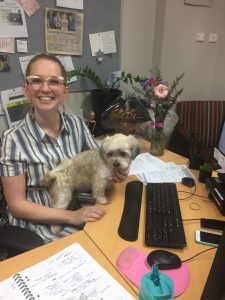
Robotic surgery giving hope to prostate cancer patients
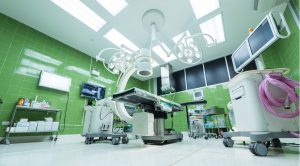
In a world first trial, Australian researchers have found that robotic-assisted prostatectomy is providing equal outcomes for urinary and erectile function to open prostatectomy.
Published in The Lancet Oncology, the study, led by researchers at the Royal Brisbane and Women’s Hospital and Menzies Health Institute Queensland, and funded by Cancer Council Queensland, found that the advanced robotic technology also offered a safer and minimally invasive option for men diagnosed with prostate cancer.
Robot-assisted surgery for prostate cancer has been rapidly adopted by health professionals and is now the most widely utilised surgical approach for prostatectomy.
Royal Brisbane and Women’s Hospital Urologist Dr Nigel Dunglison said the study examined surgery outcomes for around 300 Australian men over a two-year period.
“To date, very little research has been done comparing long-term outcomes of robotic-assisted prostatectomy and open prostatectomy,” Dr Dunglison said.
“Our study showed similar results for urinary and erectile function from both the robot-assisted and open surgical patient groups after 12 weeks, and these remained equal at six, 12 and 24 months.
“Many patients experience long-term complications post-surgery, including reduced urinary and bowel control, erectile dysfunction and elevated psychological distress. As technology, surgery, oncology, and radiation advances, we hope this will help improve long-term side effects experienced by prostate cancer survivors to reduce the burden of the disease on those diagnosed. This study has given us vital insight into the two surgical options and will help shape further research going forward.”
“We recommend that funding organisations, health care institutions and practitioners embrace minimally invasive technologies, and high quality training is provided for surgeons to ensure patients receive the best form of care.”
Dr Dunglison said the study indicated men who underwent a robotic prostatectomy had a lower biochemical PSA recurrence after two years, however, the reason for this was not specifically studied and more research is needed to understand why.
Griffith University’s Menzies Health Institute Queensland Director Professor Suzanne Chambers said one in five participants reported elevated psychological distress 24 months after surgery.
“Unexpectedly, the study also showed that psychological distress remained high for one in five men throughout the study period and was not influenced by surgery type,” Prof. Chambers said.
“These findings highlight the need for improved distress screening and psychological care long after treatment ends. Issues such as sexual dysfunction, urinary and bowel changes, and even fear of recurrence can all lead to elevated psychological distress. For optimal prostate care, there needs to be evidence-based psychological intervention that is responsive to masculinity and related concerns.”
Cancer Council Queensland CEO Ms Chris McMillan said prostate cancer was the most common cancer diagnosed in men in Australia.
“Around 18,300 men are diagnosed with prostate cancer every year in Australia, and about 3200 die from the disease,” Ms McMillan said.
“Prostate cancer is most common in men over the age of 50 and in those who have a family history of prostate, breast or ovarian cancer. If men have questions about their individual risk of prostate cancer, we recommend they speak with their GP to discuss risk factors and pros and cons of prostate cancer testing.”
Prostate Cancer Foundation Australia National Chairman, Jim Hughes AM said that the organization welcomed the study findings and embraced the dissemination of these findings about some of the many different treatment approaches available to men diagnosed with localised, prostate cancer in order to support informed decision making.
“There are various other treatments available and men need to be well across their medical choices so that optimal decisions relevant to their personal health circumstances can be made by them in conjunction with their medical advisors,” Mr Hughes said.
The study was funded by Cancer Council Queensland and undertaken by the Department of Urology at Royal Brisbane and Women’s Hospital, Menzies Health Institute Queensland, and University of Queensland Centre for Clinical Research with support from the Urological Society of Australia and New Zealand.
More information about prostate cancer can be found at cancerqld.org.au or via 13 11 20.
Making informed purposeful decisions counts at CCQ
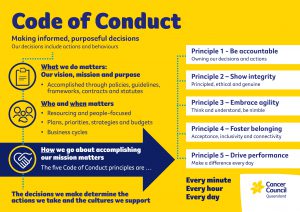
Decisions we make determine the actions we take and the cultures we support. How employees and volunteers go about accomplishing our mission matters, download our workplace policy to find out more.
Everyday health survey

Would a price increase deter you from having sugary drinks?
We’d love to hear your views on sugary drinks and the options for legislation. Maybe you think sugary drinks should be removed from schools, or there should be restrictions on marketing them to kids.
Whatever your views your answers will help us develop strategies to empower Queenslanders to live healthier happier lives.
Take this quick, anonymous survey now
Daffodil Day blooms in Queensland for another year
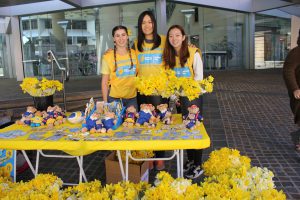
Enjoy a day filled with blooms and smiles, show your support for Daffodil Day in 2018, by volunteering a few hours of your time to help save the life of someone you love.
Our most iconic fundraising event, Daffodil Day, will take place on Friday, August 24, 2018 to raise funds for lifesaving cancer research.
Over the past 20 years, more than 61,000 lives have been saved by improvements in cancer prevention, screening and treatment right across Australia as a result of ongoing research.
With the help of volunteers selling daffodils to raise funds, many more lives will be saved.
To volunteer on Daffodil Day, or find out more, visit daffodilday.com.au or call 1300 65 65 85.
Meet Bruce Turner, Data Entry Volunteer

What is your role with CCQ? What does it involve?
Data Entry Volunteer working on the CRM Database Data Quality Project
How long have you been volunteering with CCQ?
1 year
Why did you decide to get involved with CCQ? What was your motivation for volunteering?
I am a cancer survivor. I was diagnosed with throat cancer (Chrondosarcoma of the cricoid cartilage) and had a full laryngectomy operation in 2004.
I was working full time in the IT Industry and it became too difficult due to communication and ongoing health issues and treatment. Volunteering has given me a purpose and the social interaction that I am missing post retirement. Working with a charity that supports people with cancer and funding research was a good fit for me.
What do you love most about your volunteer role?
I really enjoy getting to know the people that I work with.
What has surprised you in your role?
The selflessness of both the employees and volunteers at CCQ.
What has been the most inspiring or memorable moment you’ve had since starting with CCQ?
Meeting Ken, a volunteer aged 86 during National Volunteer Week. So inspiring … and working on the Daffodil Day stand at Central Station last year. That was a lot of fun and people were genuinely interested in my journey.
What is your hope for the future? What do you hope your volunteering will achieve?
I hope to continue to work for CCQ in the coming years and add value to whatever I do. I would also like to be able to help and support other/new laryngectomees by sharing information and assisting them with everyday issues.
What would you say to someone who was thinking about volunteering with Cancer Council Queensland?
CCQ is a great place to volunteer and the people are fantastic to work with.
What do you feel you’ve gained through volunteering for Cancer Council Queensland?
A lot of satisfaction and purpose in my life
Volunteer opportunities
Make a difference for people with cancer living in regional or rural Queensland
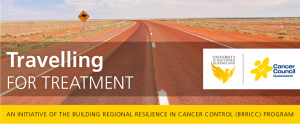
Are you interested in making a difference for people with cancer living in regional or rural Queensland? If so, we need your help! We are looking for volunteers to help us with a research project exploring the unique experience of cancer patients who need to travel for treatment, and their support people, to help improve their outcomes.
This role will involve speaking to people staying at our lodge in Townsville about the project, interviewing them about their experience travelling for treatment, collecting documentation, and updating the project database. All training for the role will be provided, although previous research experience is essential. To find out more click here
Relay For Life
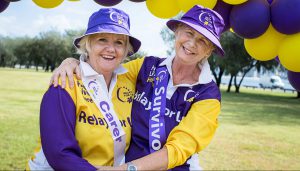
Can you give encouragement, smile at a runner, check the baton change or tick off names?
Relay for Life is happening all over Queensland and we’re on the lookout for passionate, motivated and inspired new recruits to join our amazing Relay family. Without volunteers, our events couldn’t happen – your support helps us put on the best events possible to raise lifesaving funds, and ultimately help beat cancer sooner. Join your local committee to meet new and like minded people in your local area and create a positive impact in your community. Visit our opportunities page to find out more.
